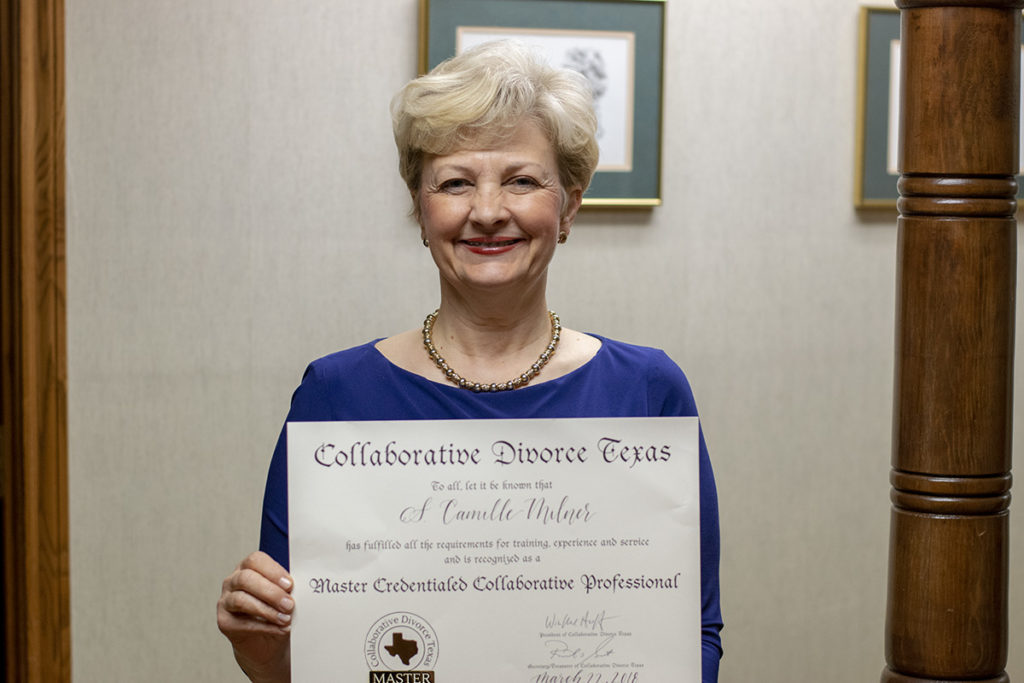
Here are some quick keys for how to find and hire a Collaborative attorney.
In 2001, Texas passed the First Collaborative Law statute in the United States, then after the Collaborative Divorce Process evolved, in 2011, a much more extensive statute was passed. Since the first Collaborative Law statute was passed in Texas in 2001, many other states and the Uniform Laws Commission of the United States (which seeks to make all states’ laws uniform) passed its own Collaborative Law statute. The one shortcoming to that statute, in many people’s opinions, is that it does not have requirements for lawyers to practice Collaborative Divorce.
Here are some suggestions from Collaborative Divorce Texas for picking your lawyer is you want a Collaborative Divorce:
1. Make sure the attorney is actually trained in Collaborative Divorce.
An attorney, and the other professionals involved, actually need to have attended at least a two-day “basic training”. Some attorneys will try to claim that they can handle the case without it, but they will not do a good job for you. In addition, the attorney should regularly attend training to continually update their skills. From my observations over more than 10 years of Collaborative work, it is clear that the practice has evolved and changed over the time. Attorneys need to keep up with new ideas.
2. If an attorney tries to talk you out of Collaborative Divorce right off the bat, get a second opinion.
Unfortunately, there seem to be a lot of “bait and switch” attorneys who advertise that they handle Collaborative cases even though they usually haven’t been trained. If someone comes in and wants to use Collaborative Divorce , the attorney immediately starts telling them all the reasons why it would be inappropriate. If you get that treatment, get a second opinion.
3. Ask about the attorney’s experience in Collaborative Divorce cases.
Ask them if they are a member of Collaborative Divorce Texas; any Collaborative Divorce attorney in Texas who is committed to the practice of Collaborative Divorce is a member of Collaborative Divorce Texas. Ask how long they have done Collaborative work and how many cases they have handled to a successful completion. Ask them to tell you some stories about how they got some good outcomes from it. Ask what they like about Collaborative Divorce. An experienced attorney can easily answer those questions. A bait and switch attorney can’t.
4. Location.
Generally, you need a local attorney, from the county where you reside. If there aren’t many Collaborative attorneys in your county, check for an adjacent county. Don’t worry about where the attorney’s office is. I’ve had cases where all the meetings were at my office, some where all the meetings were at the other attorney’s office, some were all at a neutral site and some were at a financial professional’s office. The location is always set up for the convenience of the parties.
5. Good chemistry.
This is the intangible. Make sure you have a good feeling about the attorney. Trust your gut on whether this is the right attorney for you.If you follow through with these suggestions, you should end up with a good Collaborative lawyer and hopefully a more peaceful divorce experience.
If you hire an attorney who is not trained and experience in the Collaborative Divorce Process, it is much more likely the case will not be successful. There are hundreds of Collaboratively trained lawyers in Texas with substantial experience from whom you can choose. If you choose a lawyer who is Credentialed or Master Credentialed by Collaborative Divorce Texas, you are hiring a lawyer who has had extensive training, experience, and has met strict requirements that let you be assured are hiring someone who has a track record of commitment and success in helping clients and families resolve their divorce through the Collaborative Divorce process, which provides privacy, respect, preservation of relationships and peaceful resolutions.











